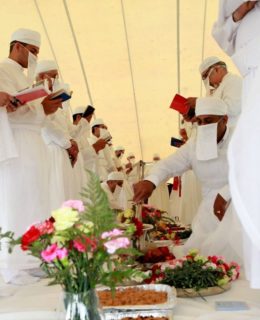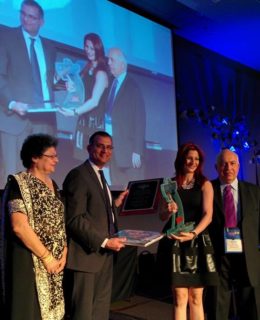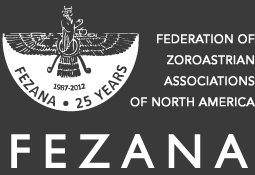Zoroastrian delegation to deliver panel discussion at UN Headquarters as part of the 59th Commission on the Status Of Women (CSW)
NEW YORK, February 15, 2015 – FEZANA will be participating at the 59th Commission on the Status of Women (CSW) Conference to be held at the UN Headquarters in New York, USA.
Homi Gandhi, Narges Kakalia, Nurelle Mehta, Adina Mistry, Nina Mistry and Khushroo Patel from FEZANA will be representing the Zoroastrians at the UN. The group will be presenting a panel discussion titled, “Education: A Powerful Tool for Gender Equality.”
Social change to uplift society comes when men and women are treated equally with respect and dignity. This aspirational goal cannot be reached through the work of women alone. This workshop will explore the empowerment of women that arises at the intersections of education, access to health care, freedom from violence and the crucial roles that men and boys in society can play to advocate and work towards global gender equality.
The panel discussion details are:
Date: Monday, March 16h, 2015
Time: 6:15 pm to 7:45 pm
Location: Church Centre, 10th Floor, 777 United Nations Plaza, New York, NY
Visitors do not need a security pass to attend the session, so please encourage your local Zoroastrians to attend and support the presentation.
About United Nations
The United Nations is central to global efforts to solve problems that challenge humanity. Cooperating in this effort are more than 30 affiliated organizations, known together as the UN sytem. For more information visit www.un.org
About Zoroastrians
Zoroastrians have long served as effective bridge builders in interfaith dialogue as they see from their own faith, traditions of truth, righteousness, charity, beneficence and respect for creation reflected in traditions of the religions of both the occident and the orient. Zoroastrianism, founded circa 1500 BCE, is credited to be one of the oldest monotheistic religion, influencing post-exilic Judaism, which adopted some Zoroastrian beliefs such as the ultimate victory of good over evil and the resurrection of souls. These percepts were then transmitted through Judaism to Christianity, and later to Islam. Zoroastrianism flourished as the imperial religion of three Persian empires, those of the Achaemenians, Parthians and Sasanians, and was the dominant religion from Turkey, and eastward to China during those times. North America’s Zoroastrian community includes those who arrived from the Indian subcontinent, known as Parsis, and those who came directly from Iran seeking religious freedom.
About FEZANA
Founded in 1987, FEZANA serves as the coordinating body for 25 Zoroastrian associations throughout the United States and Canada. FEZANA promotes the study, understanding and practice of the Zoroastrian faith in North America., represents the interests of its member associations, and carries out philanthropic and charitable activities worldwide. The FEZANA Journal, FEZANA’s publication of record, circulates to Zoroastrian households in more than 22 countries, as well as to scholars, academicians and religious organizations worldwide. For more information visit: www.fezana.org.




